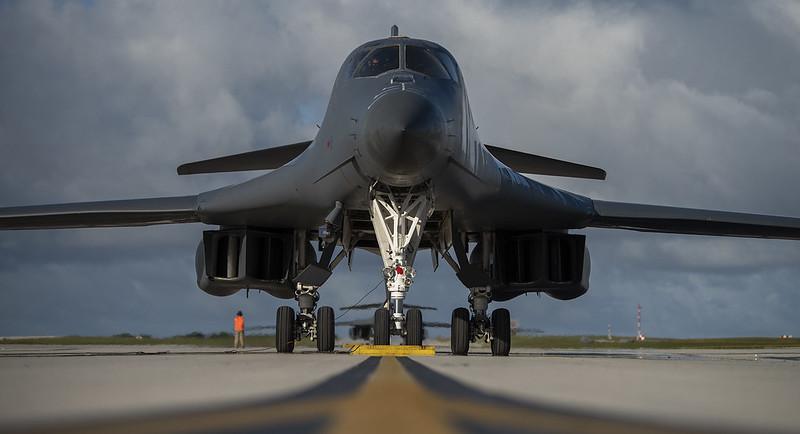
Sea state
Taiwan has opened a shipyard to build a new fleet of diesel-electric submarines. This represents a significant step for President Tsai Ing-wen in her plan to revitalise Taiwan’s outdated navy. A state-owned shipbuilding company will construct eight attack submarines at the yard, with the first one expected to be completed by 2025. Taiwan’s navy has only four operational submarines at present, two of which date back to the mid-20th century. The new submarines will provide a significant boost to Taiwan’s naval capabilities as Beijing becomes increasingly assertive in the Taiwan Strait.
Russia has accused the US of sailing a navy destroyer into its territorial waters in the Sea of Japan. Moscow claims it forced USS John S. McCain out of Peter the Great Gulf after threatening to ram it. Washington has denied that its ship was expelled from any territorial waters and instead says that it was on a freedom-of-navigation patrol to challenge ‘illegitimate maritime claims’ in the area.
Flight path
Australia and the US will collaborate under a new initiative—the Southern Cross Integrated Flight Research Experiment, or SCIFiRE—to develop a hypersonic missile that can fly at five times the speed of sound, the equivalent of flying between Sydney and Melbourne in seven minutes. Defence Minister Linda Reynolds said this ‘game-changing capability’ will protect ‘the nation’s interests in a rapidly changing global environment’. This development also marks Australia’s entry into the global hypersonic arms race, joining China and Russia.
The US Air Force has been exploring sites for new runways and facilities across the Indo-Pacific in an effort to disperse its forces and bases in the region. At the same time, several military analysts have claimed that China’s upcoming H-20 stealth bomber will be able to strike US territory. Given China’s growing military reach, Pacific Air Force Commander General Kenneth Wilsbach stated that the US has ‘studied every single piece of concrete in the Pacific and Indo-Pacific’ and will work to determine which sites meet operational criteria for US bases.
Rapid fire
The Australian Defence Force has served show-cause notices on 13 soldiers suspected of being complicit in or witnesses to the war crimes allegedly committed by members of Australia’s special forces in Afghanistan. The findings of the years’ long inquiry by Justice Paul Brereton were released last month, and included a recommendation to revoke merit unit citation awarded to special forces who served in the country between 2007 and 2013. While ADF chief General Angus Campbell originally accepted that recommendation, it has faced strong opposition from serving ADF members and special forces veterans. The government later said a decision on the matter had yet to be taken.
The US Army says it is re-evaluating its ‘prepositioned stock’ to address strategic competition with China and Russia in both the Indo-Pacific and Europe. Prepositioned stock includes sets of equipment such as tanks and other armoured vehicles placed in strategic areas of the world to signal the US’s commitment and combat capabilities. An enhanced US presence in the Pacific has also been flagged.
Final frontier
Japan’s Hayabusa2 spacecraft will drop samples from a 4.5-billion-year-old asteroid on South Australia’s Woomera test range on Sunday. A team from the Japan Aerospace Exploration Agency is on site preparing for the recovery effort. Samples from asteroid Ryugu will assist scientists in understanding the origins of life in the solar system. After flying by earth, Hayabusa2 will continue on its next mission to visit another asteroid in 2031.
A portion of the recently announced £16.5 billion (A$30 billion) increase to the UK defence budget will be used to create a new Space Command to protect critical satellite services. The new command will work alongside the Ministry of Defence’s Space Directorate and be overseen by the Royal Air Force. One of its projects will be to launch British satellites and rockets from Scotland by 2022. Air Chief Marshal Mike Wigston recently warned against describing space as a military domain while condemning China and Russia for developing anti-satellite capabilities.
Wired watchtower
As part of Prime Minister Scott Morrison’s upcoming cabinet reshuffle, cybersecurity will be elevated to an area of ministerial responsibility. The cybersecurity function will reportedly be added to the Home Affairs portfolio and include responsibility for cybersecurity legislation and implementation of the government’s cybersecurity strategy. Australia has been hit by an increasing number of cyberattacks this year, prompting the government to enhance its efforts to defend against cyber threats.
The UK government has announced that the installation of Huawei equipment in the country’s 5G networks will be banned from September next year. This comes after a government decision in July to have all Huawei technology removed from the country’s 5G infrastructure by 2027. According to the UK’s digital and media secretary, these steps pave a path ‘for the complete removal of high-risk vendors from our 5G networks’. On Monday, the UK launched a strategy to diversify its 5G supply chain by bringing more telecommunications providers into the market.